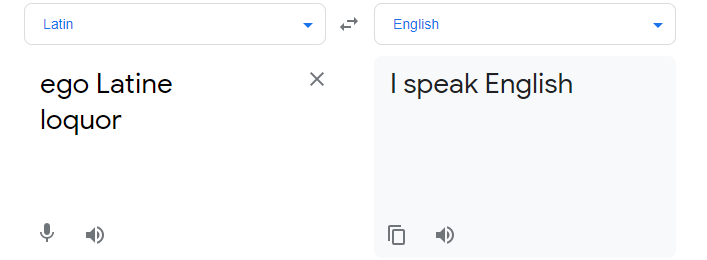It's well-known on this community that you can't trust any Latin translation from Google Translate. A comment about translating goatherd with Google Translate got me thinking, though. What is the most absurd or ridiculous translation you have seen from Google Translate for something in Latin?
If this question doesn't seem appropriate or useful let me know and I will delete it. I thought it might be a humorous but useful way to illustrate how much someone should not what they get from Google Translate for Latin.

